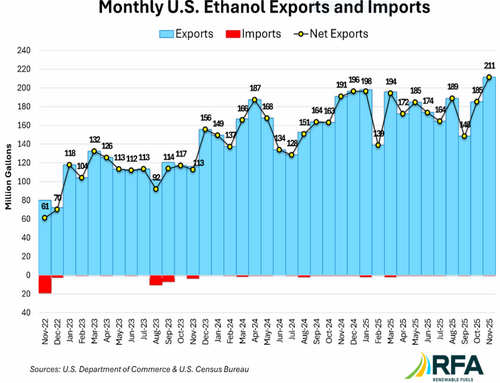by Leah Douglas and Jarrett Renshaw, Reuters
Little to no ethanol will qualify for U.S. sustainable aviation fuel (SAF) subsidies under a new pilot program by President Joe Biden’s administration, which toughened climate requirements at the last minute, according to a Reuters review of government data and people familiar with the matter.
The issue could hurt the biofuel industry, which sees SAF as ethanol’s best chance at growth since electric cars have cut into its market as a gasoline additive. It could also hinder Biden’s goal of producing 3 billion gallons of SAF by 2030. He once promised 95% of SAF – a biofuel that can be made from oils, waste, or grains – would come from farmers.
Details about how little ethanol will qualify for the subsidies under the pilot program, and how the requirements were raised at the final hour, have not previously been reported.
At issue is a $1.25/gallon production tax credit embedded in the 2022 Inflation Reduction Act reserved for SAF that demonstrates a 50% reduction in lifecycle greenhouse gas emissions compared to regular jet fuel.
Under the pilot program finalized on April 30, ethanol producers seeking to claim that credit must verify their corn comes from farms using three climate-friendly farming practices in tandem: not tilling the soil, planting cover crops, and using higher efficiency fertilizers.
U.S. Agriculture Secretary Tom Vilsack touted the program as “a great beginning as we develop new markets for sustainable aviation fuel that use home grown agricultural crops.”
But a Reuters review of data from the U.S. Department of Agriculture (USDA) suggests almost no U.S. corn farmers use all three practices at the same time. Officials at five farm and biofuel trade groups told Reuters few, if any, ethanol-makers will be able to meet the standard.
To read the entire article click here.


